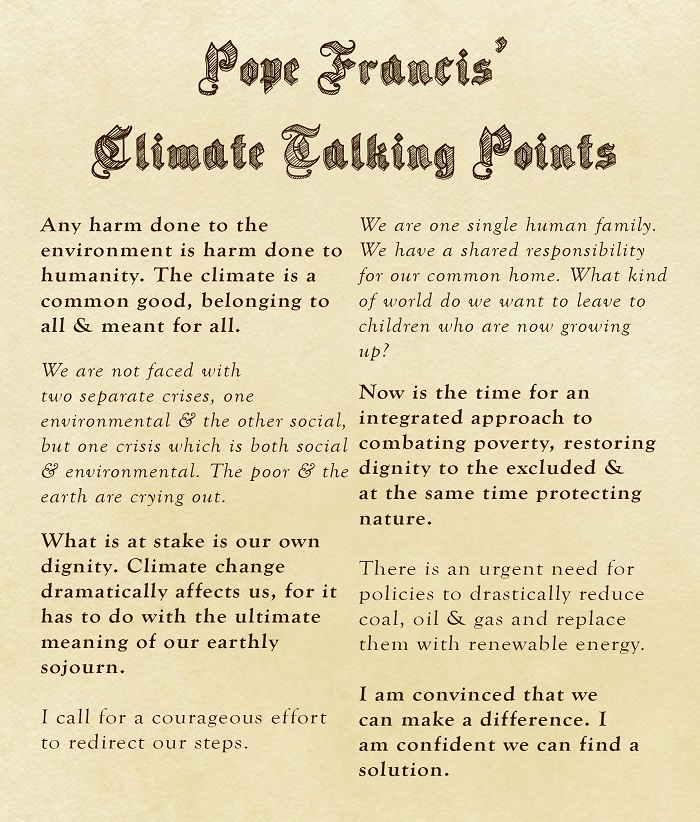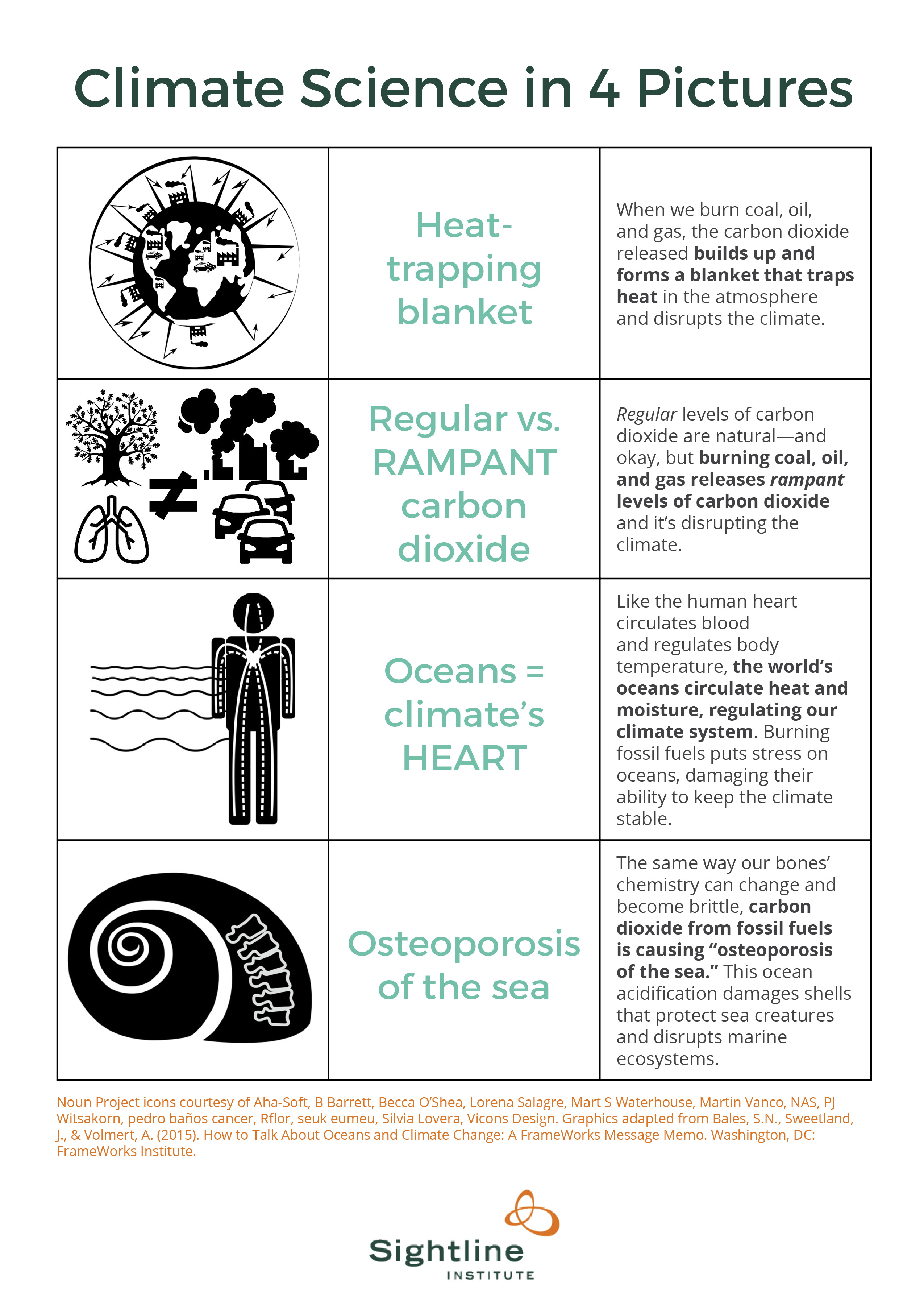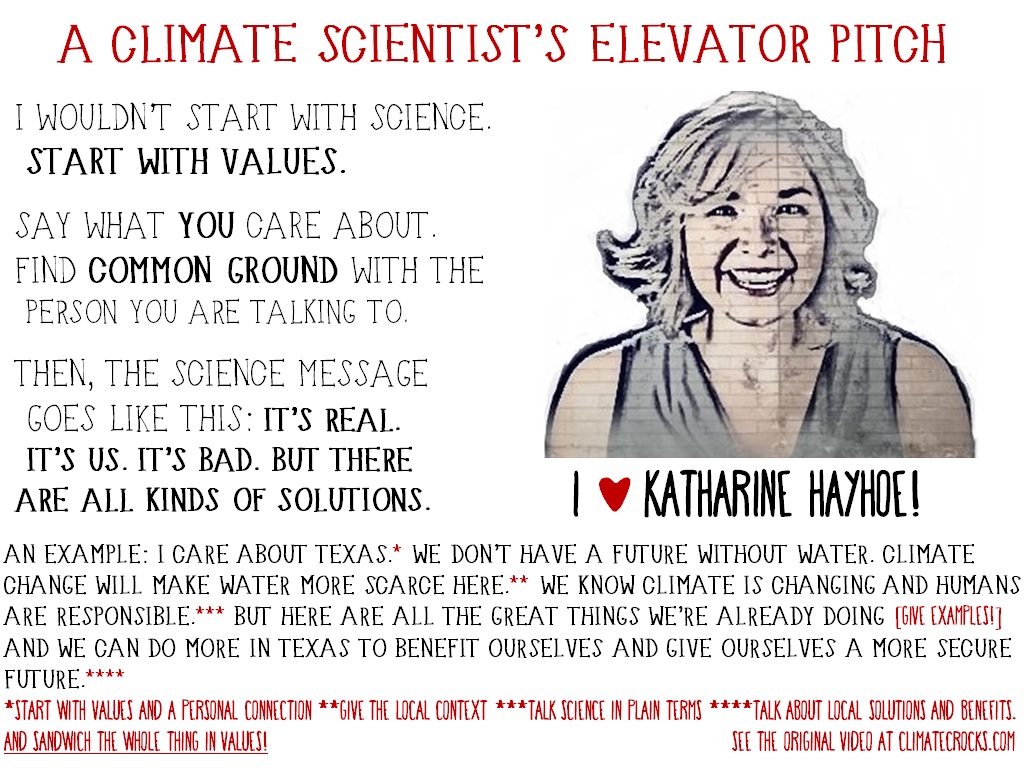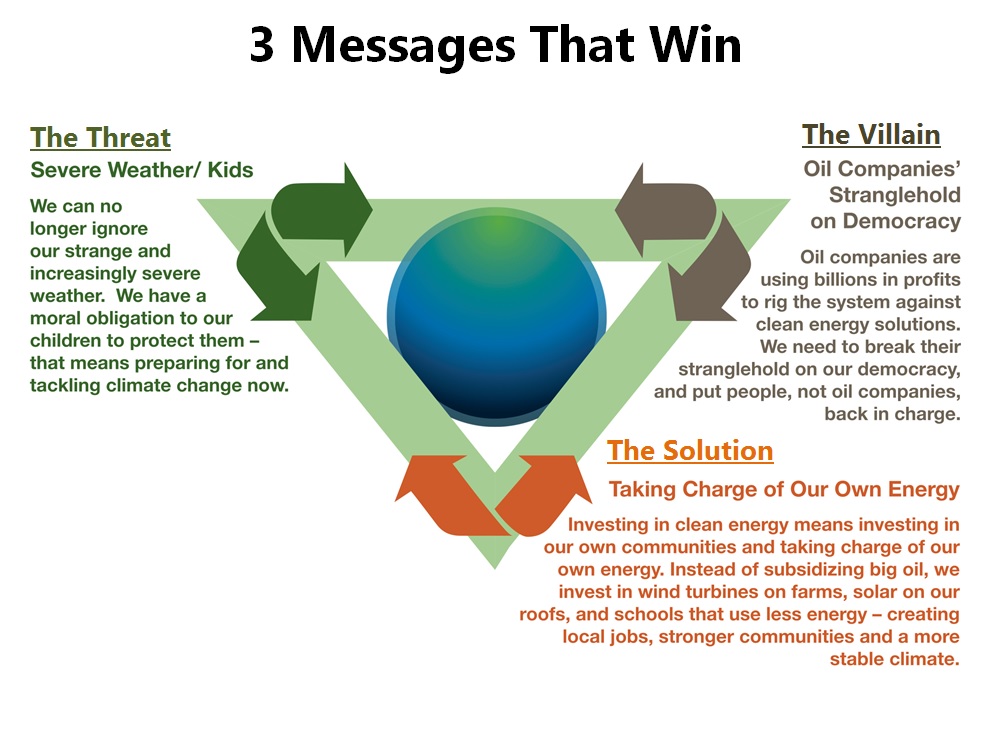From the Pope’s encyclical to the Paris climate talks to steadily growing traction for a price on carbon pollution, and in communities across the region where people are saying “no” to coal and oil infrastructure, folks in our neck of the woods have been talking about climate change more than ever! And you’ve been savvy about it too, arming yourselves with tested strategies for effective communications. It’s no surprise that Sightline’s top five messaging memos for 2015 focused on climate messaging.
Here are those top five cheat sheets again—-it’s a nice package of talking points that take us from climate science basics through the most powerful moral arguments for action. Enjoy reading and thank you for putting our messaging tools to work. We’re looking forward to more conversations about climate change in 2016.
5. Pope Francis’ Climate Change Talking Points
Pope Francis took his first trip to the United States this year, and the buzz was hard to miss. It isn’t just his flock that’s paying attention to his messages; the Pope has nearly everyone’s ear and he’s talking about climate change—a lot—and in many influential new ways. Here’s your quick guide to Pope Francis’ forceful global warming message.

4. Climate Science in 4 Pictures
We don’t need to know the science of climate change inside and out in order to care or want to act to fix the problem. Non-scientists count on the experts to get the details right. But having a handle on the basics can be a game changer. Why? Gaps in our understanding about the mechanisms of climate change along with the metaphors we use to explain and visualize the problem dictate which solutions seem logical. Here are four simple and effective metaphors that quickly explain abstract scientific concepts.

3. What’s Your Climate Change Elevator Pitch?
The set-up is simple: You’re on an elevator. Somebody says, “Oh, hi, you’re a climate scientist? What’s the big deal about climate change anyway?” What do you say in two minutes or less? In this popular Flashcard, climate scientists share their top climate change elevator pitches. Now is your chance to memorize their notes and create your own!

2. Video: The Art of Talking Climate Science
Communicating climate science to non-experts in convincing ways feels more important than ever. But the accepted language of academic reporting as well as the established norms of most scientific fields can set scientists up for trouble. So, what’s a scientist to do when a news reporter calls? Here’s a short video outlining four messaging guidelines to equip scientists with compelling messages.
[sightline-embed]
1. Three Climate Messages That Win
This most popular Flashcard of the year is a must-read for climate communicators. Its powerful messaging narrative has informed high-profile climate communications from the White House and the Environmental Protection Agency, to 350.org and state and local leaders across the United States. It’s a clear message triangle that cuts through coal and oil industry tactics and frames global warming and energy solutions on our terms, not theirs.

[button link='{“url”:”http://www.sightline.org/2014/12/31/2014s-five-fave-flashcards/”,”title”:”Love what you|apos;re reading? Check out our top Flashcards from 2014 here.”}’ color=”orange”]


Comments are closed.